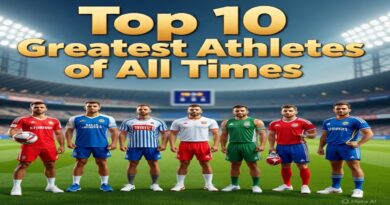What Are the Top On-Page SEO Factors in 2025?
Introduction:
If you’re running a website in 2025, understanding the top on-page SEO factors is critical for ranking high on Google. These strategies are more advanced than ever before. From keyword placement to core web vitals and content structure, optimizing your pages correctly can boost visibility, organic traffic, and authority.
Keyword Placement in 2025.
Placing your main keyword within the first 100 words, especially in the first paragraph, remains essential. Use LSI keywords (related terms) naturally throughout your content. Also, include keywords in:
Meta title
Meta description
H1, H2, and H3 headings
Image alt tags
URL slug
Pro Tip: Avoid keyword stuffing. Focus on natural placement and user intent.
2. High-Quality and Updated Content
Google now prefers fresh, helpful, and human-first content. Your article should:
Solve a specific problem
Be at least 1000–1500 words
Be original and plagiarism-free
Include FAQs and use-case examples
Be updated regularly
Use Google’s Helpful Content Update as a guideline.
3. Mobile-Friendly and Responsive Design
More than 70% of users browse on mobile. Make sure your website is:
Mobile responsive
Fast loading on mobile (check with PageSpeed Insights)
Easy to navigate with clear CTAs
Core Web Vitals (LCP, FID, CLS) are now major ranking factors.
4. Meta Tags Optimization.
Meta Titles and Meta Descriptions must include your main keyword, be compelling, and under character limits:
Meta Title: under 60 characters
Meta Description: under 155 characters
Example:
Meta Title: On-Page SEO 2025: Top Ranking Factors
Meta Description: Learn the top on-page SEO techniques in 2025 to boost Google rankings and organic traffic.
5. Optimized Heading Structure.
Use a clear heading structure:
H1 = Main Topic (only once)
H2 = Sub Topics
H3 = Supporting Points under H2
Include keywords in H1 and at least one H2. Use Table of Contents for longer posts.
6. Internal and External Linking
Add internal links to related articles or product pages
Add external links to trusted sites like Wikipedia, Google, Forbes, etc.
Use descriptive anchor text (avoid “click here”)
Example:
Learn more in our guide to SEO for WordPress Blogs.
7. Image Optimization.
Use compressed images (WebP or JPEG)
Add alt text with relevant keywords
Use descriptive filenames (e.g. on-page-seo-2025-guide.jpg)
Tools: TinyPNG, ShortPixel
8. Clean and SEO-Friendly URLs.
Your URL should be:
Short and readable
Include your main keyword
Avoid numbers and special characters
Example:
❌ zaibies.com/blog/article123?id=2025
✅ zaibies.com/blog/on-page-seo-2025.
9. Schema Markup (Structured Data.
Implement schema markup to improve CTR and visibility in search:
Article schema
Product schema
FAQ schema
Tools: Schema.org, Rank Math SEO plugin, Yoast SEO.
10. User Experience and Engagement.
In 2025, user signals matter more than ever. Boost engagement with:
Fast-loading pages
Easy navigation
Mobile-friendly layout
Interactive content (videos, polls, etc.)
Low bounce rate and high time-on-page help SEO rankings.
Conclusion:
On-page SEO in 2025 is not just about keywords — it’s about user experience, helpful content, and technical excellence. If you implement the strategies above consistently, you’ll gain better rankings, more traffic, and higher conversions.
Keep updating your site, track your performance with Google Search Console and Analytics, and stay up-to-date with algorithm changes.




Pingback: Step-by-Step Guide: On-Page SEO for WordPress Blogs (2025) Zaibies